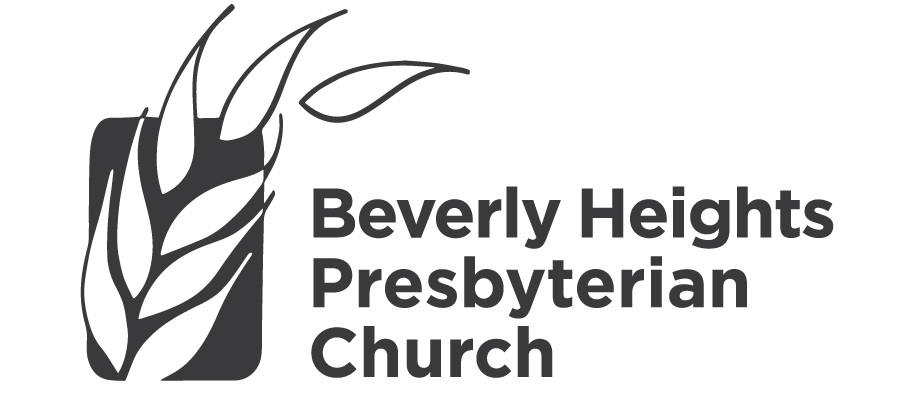Beliefs
Beverly Heights Church is Presbyterian in Polity, Reformed in Theology and Confessional in Commitments
- Presbyterian Polity
- Beverly Heights Church is governed by a Session, which is comprised of a plurality of Ruling Elders and Pastor(s).
- We practice a unicameral system of government, where Elders serve as both Session members and Trustees of the Corporation.
- The Session oversees and supervises all aspects of the life of the local church.
- Details on church governance are available in our constitution and bylaws (forthcoming).
- Reformed Theology
- Beverly Heights Church is rooted in the Reformed tradition and anchored in Reformed theology.
- Reformed theology begins with the doctrine of God, making it theocentric (God-centered) rather than anthropocentric (man-centered). All other doctrines flow from God’s centrality.
- Reformed theology is covenantal, viewing biblical revelation and redemption history through the lens of two divine covenants: the covenant of works and the covenant of grace.
- Reformed theology is biblical and systematic, often defined by the Five Solas of the Protestant Reformation (Sola Gratia, Sola Fide, Solus Christus, Sola Scriptura, Soli Deo Gloria) and T.U.L.I.P. (Total Depravity, Unconditional Election, Limited Atonement, Irresistible Grace, Perseverance of the Saints).
- Confessional Commitments
- Beverly Heights Church affirms the Ecumenical Creeds: the Apostles’ Creed, the Nicene Creed, the Athanasian Creed, and the Chalcedonian Definition.
- Our congregation also subscribes to the Westminster Standards as the sole subordinate standard of faith, recognizing it as the fullest expression of historic Reformed doctrine and scriptural truth.
- The Westminster Standards, though authoritative, remain subordinate to Holy Scripture. The Reformed tradition holds Scripture as inspired, inerrant, and infallible. Westminster summarizes biblical doctrine but is neither inspired, inerrant, nor infallible, and thus not equal to Scripture.
- Complementary to Scripture, Westminster systematically outlines its doctrines, reinforcing our commitment to historic Reformed orthodoxy. It serves as the standard for teaching and evaluating doctrinal fidelity to Presbyterianism and the Reformed tradition.
